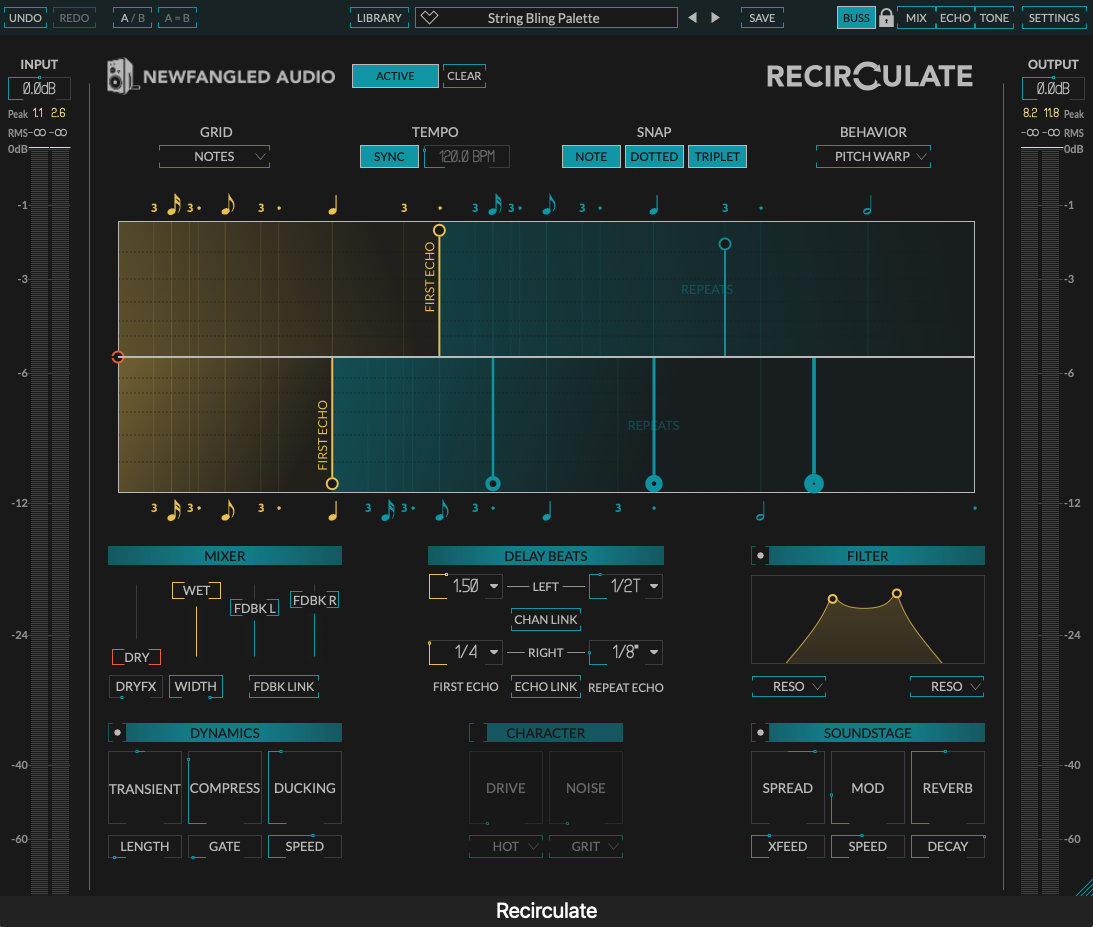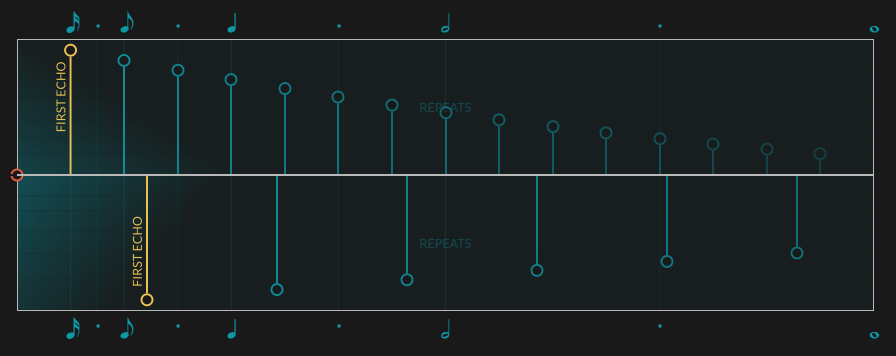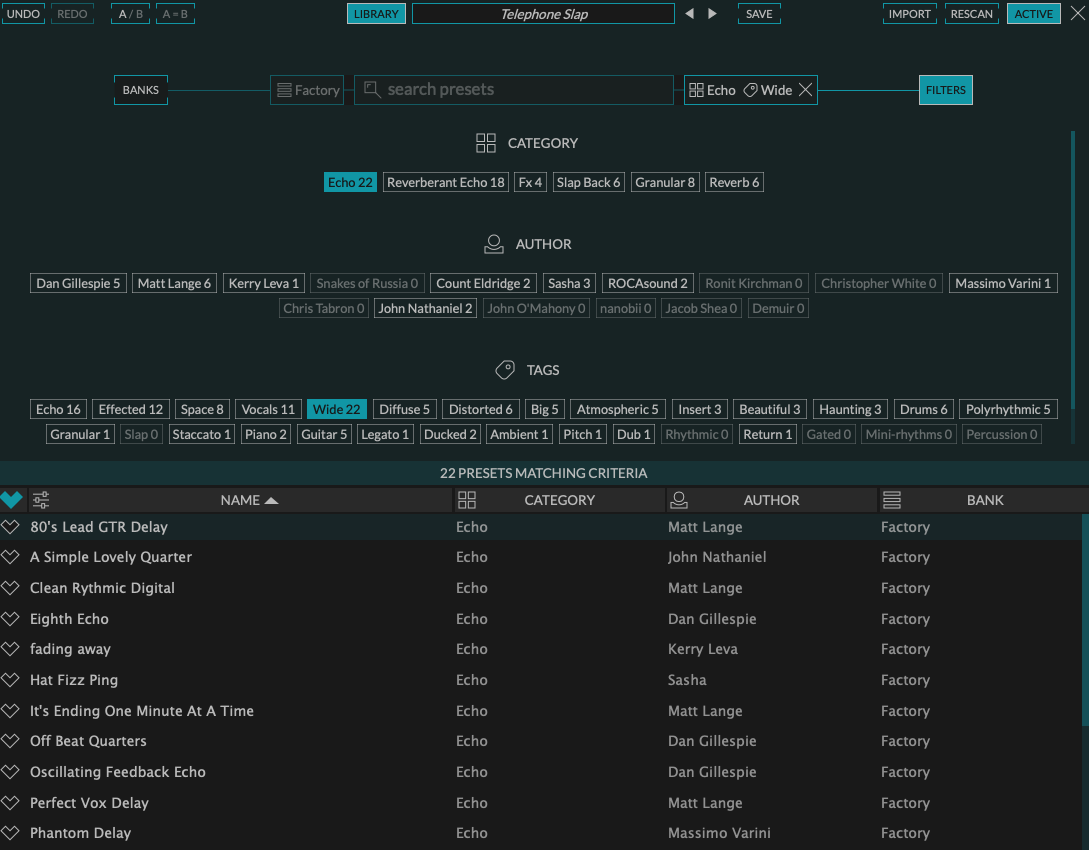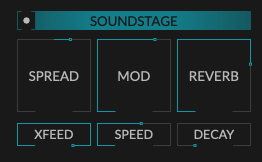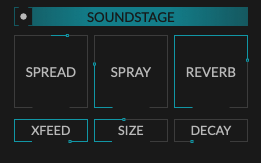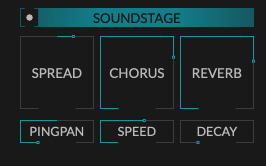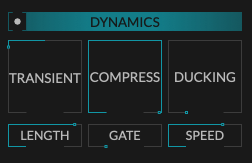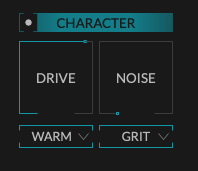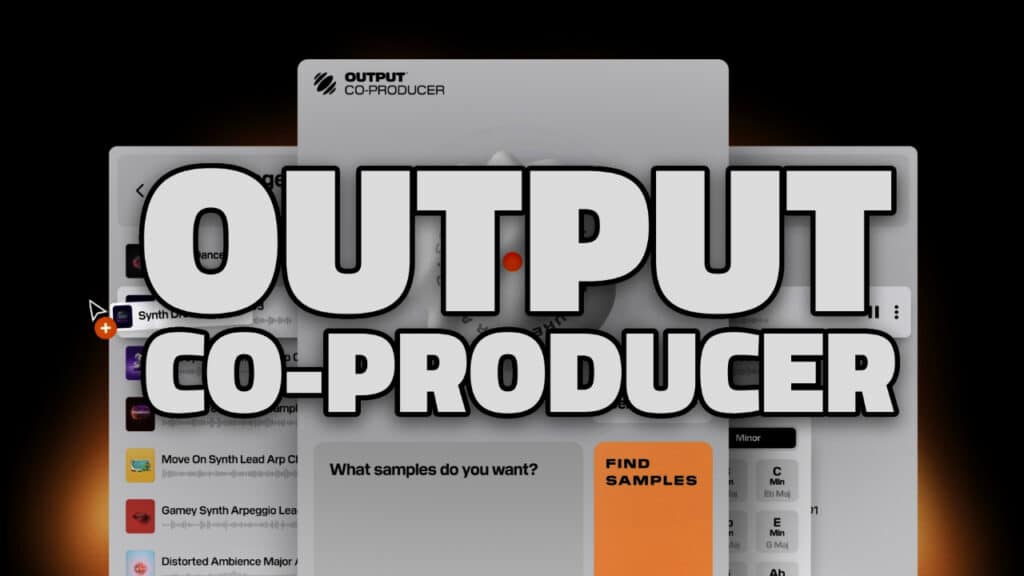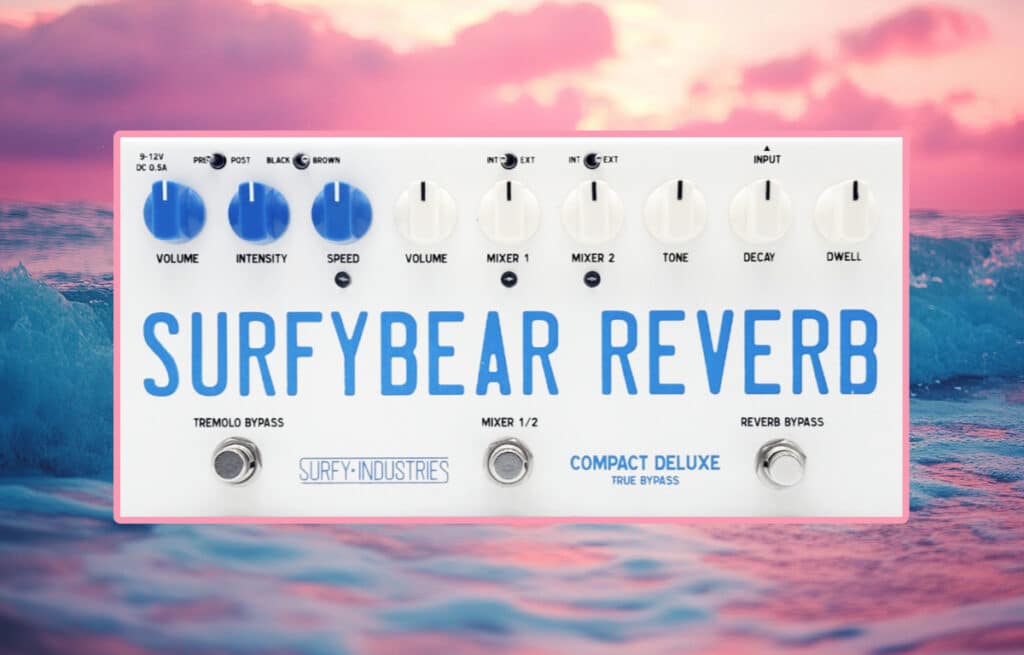Recirculate, the new feedback echo plugin from Newfangled Audio is a beautifully designed device inside and out. In this review, I’ll take dive into its feature set, offer some examples, and see what sets it apart from other delay-based plugins out there.
FEEDBACK ECHO vs. TAPPED DELAY LINE (TDL)
Tapped Delay Line Block Diagram (source)
By definition, a delayed sound is a direct copy of an original input. Echoes are multiple delayed sounds that get progressively distant (softer) over time. A delay refers to a singular sound that reproduces an input signal at a specified time. Multiple taps or delay lines can be added at other times and each can processed differently. Echoes are a type of delay with multiple taps that more often than not mimic a natural acoustic response. Correctly or not, the terms are often used interchangeably so it might be splitting hairs to make a distinction.
Usually, when I want more sophisticated delay-based effects I’ll reach for a dedicated delay plugin with configurable tap lines, relegating so-called echo plugins to simple echo-style gestures with a few exceptions. But with the introduction of the feedback echo, Recirculate by Newfangled Audio, my mindset has changed.
BACKGROUND
If you are familiar with any of the Newfangled Audio stuff you’ll know that these are quality plugins with awesome DSP guts under the hood. The company was founded by former Eventide programmer, Dan Gillespie and their unique approach is summarized at the end of the user manual.
Speaking about the tendency in the industry to recreate vintage gear, Gillespie observes:
The reverence we have for these pieces can sometimes turn into fetishism, and mindless re-creation of classic gear can fail to inspire musicians and artists to take new risks. Newfangled Audio seeks to only make gear that incorporates new ideas. We want to make gear that is great, but only using ideas that others are not. We realize that deviation from the norm might sometimes be objectionable. The Oxford English Dictionary defines Newfangled as ‘objectionably new’.
I first read this manifesto of sorts when I reviewed their Elevate mastering limiter plugin several years ago and it stuck with me. It’s refreshing to see a company committed to moving forward in an age of retro-fetishism.
THE GUI
Recirculate GUI
The interface of Recirculate is consistent with other plugins in their product line. The controls are self-explanatory for the most part with a color scheme that’s easy on the eyes. Many parameters can be altered by both dragging around nodes in the visual display or using the associated sliders or number boxes. The echo interface is broken up into two distinct sections. The yellow portion identifies the delay time for the first echo. The blue section represents the subsequent echoes (or repeats) which have delay times that can be adjusted independently from the first echo.
The repeats are locked together as a unit, so if you change the timing one of them, the others will move proportionally. However, the position of the onset of the repeats can be altered in relation to the first echo, and all echoes (first echoes and repeats) can be unlinked in terms of the L/R channels creating unlimited complex rhythmic possibilities that go well beyond simple ping-pong style delays.
Unlinked channels
THE SECTIONS
The interface is well-laid out with global controls along the top, graphics in the center, and parameter controls on the bottom. The only reason to leave the main window is to explore robust menu of presets arranged in a searchable matrix by category, author, and tags. You can mark favorites and create your own user library.
Preset Matrix
On the top right of the main interface you can choose to retain or over-write certain aspects of the current settings when initiating a new preset. This is an excellent feature addition because you may have spent a lot of time tweaking out the perfect combination of wet/dry or effect settings and you just want to try these settings with a new preset. Now you can.
The Grid can be viewed in notes for syncing to tempo, steps (which allows you to select the number of steps in a measure) as in a sequencer or milliseconds.
The Behavior setting is a powerful one that identifies the nature of the delay processing to be used. Making different selections will change available parameters in the Soundstage section.
Standard Behavior
Pitch Warp
Granular
Ping Pong
I found the Pitch Warp setting to be particularly satisfying as it created unusually juicy-sounding gurgles thanks to the MOD speed control in the Soundstage section.
The main emphasis of Recirculate is in the processing of the feedback loop. The developer states, “The right combination of processing will cause the signal to slowly morph into something beautiful, ugly, or just unrecognizable.” Sounds like the aging process–but I digress.
The four sections at the bottom that really shape the sound nature of the repeats are the Filter, Dynamics, Character, and Soundstage (mentioned above).
The Dynamics section includes gating, ducking, compression and transient control that can aggressively or subtly change the nature of the repeats.
The Character section is all above distortion and drive. If you’re after a crunchy, dirty, hissy, or gritty sound, this section get you there.
The Filter section can radically effect the spectrum of repeats with two multimode filters in a little graphic display. It is a bit surprising how little tweaks here can really sculpt out the sound you’re after.
The Soundstage, mentioned above, has various functionality and controls depending on the Behavior setting. I encourage you to explore all the Behavior modes and related controls because you can radically change the sound with one click, for better or worse.
EXAMPLES
Below are some examples using a few Recirculate presets applied to a few different sounds. I used mainly short transient sounds here to emphasize the resultant echoes, but I encourage experimentation with literally any input. You’ll find that the dynamics and filter sections are useful for limiting the duration of the echoes. For instance, more aggressive filtering will cause the echoes to dissipate more rapidly as the signal gets fed back through the system.
SNARE HITS
Dry
Audio PlayerPreset: Don’t Call Me Basic
Audio PlayerPreset: Don’t Call Me Basic with more filtering
Preset: Filtered Perc Dirt
Preset: Dirt
Audio PlayerPreset: Gated Resonator
Preset: Ghost Notes
Preset: It’s Ending One Minute At A Time
Preset: Triplet Chaos
DRUM LOOP
Dry
Audio PlayerPreset: 80s Lead Guitar Delay
SYNTH BRASS STAB
Dry
Audio PlayerPreset: Gated Resonator
Preset: Orchestral Toms Scale Up
Preset: Ping Pong Queen
THE GIANT (altered piano Kontakt library from Native Instruments)
Dry
Audio PlayerPreset: Don’t Call Me Basic
Audio PlayerPreset: Ping Pong Queen
THE GRANDEUR (Kontakt-based piano library from Native Instruments)
Dry
Audio PlayerPreset: Fade Away with Ducking
Preset: Ghost Delay
Preset: Lazy River
CONCLUSIONS
Recirculate is another winning plugin from Newfangled Audio that challenges the notion that being objectionable somehow conflicts with innovative and forward-thinking approaches that encourage new ways to look at existing paradigms. Just when you thought you had enough delay-based plugins, this thing comes along to destroy your comfort zone and throw stones in your pool of tranquility. It combines simplicity in design with complexity of result and is great fun to boot!
EXTRAS
See what’s new on our Member Resources page.
Not a Pro Member yet? Check the Member Benefits page for details. There are FREE, paid, and educational options.



